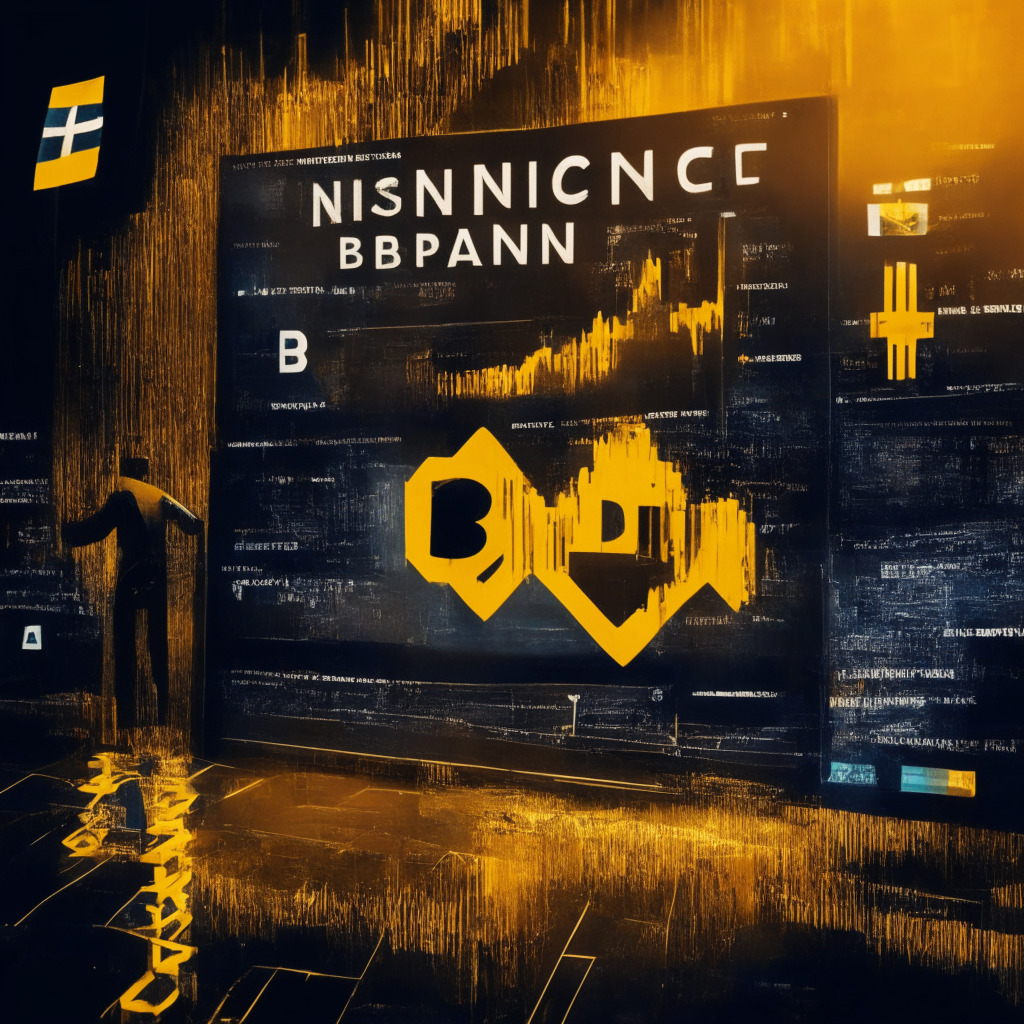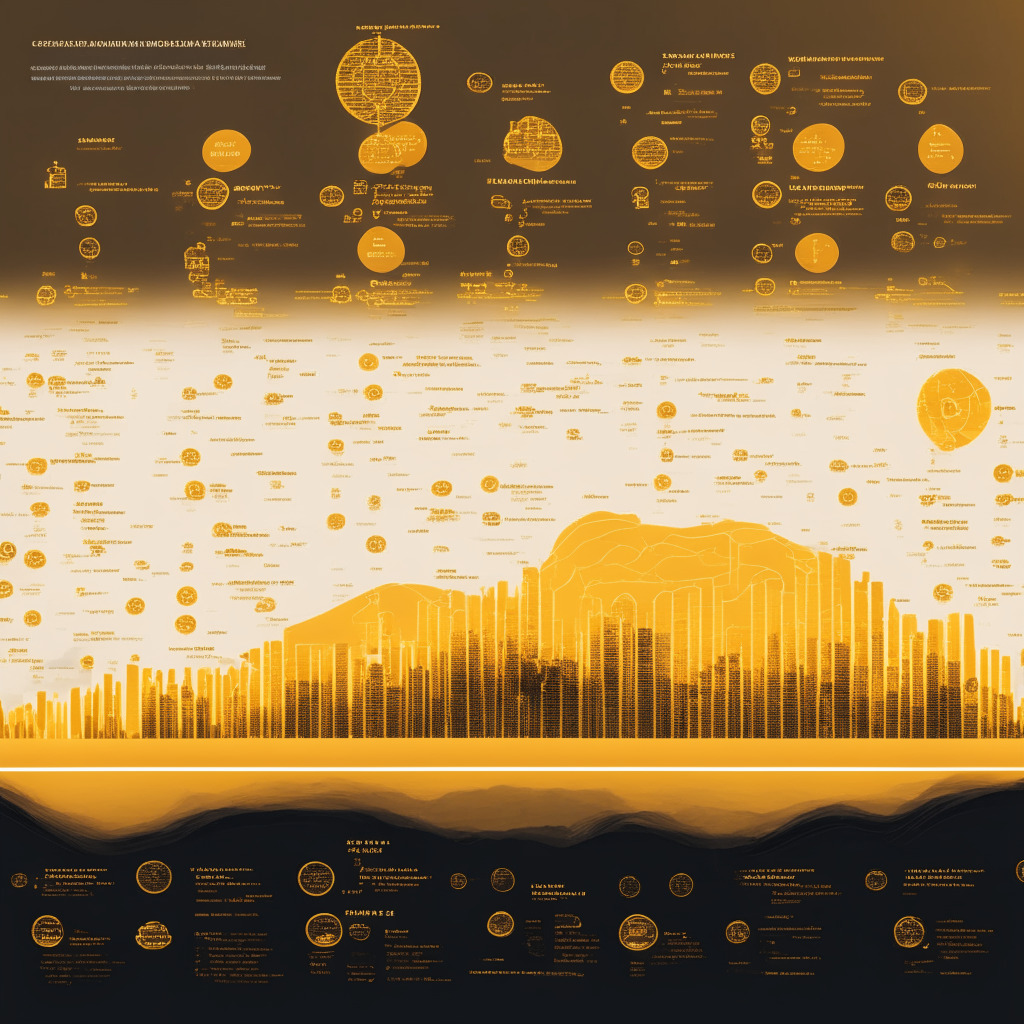Blockchain Australia’s new CEO, Simon Callaghan, is rallying Australia’s banks, government, and the local crypto community to combat rising cryptocurrency scams. The Australian Government is significantly investing in reducing scams, with National Anti-Scam Centre playing a crucial role. Blockchain Australia is now focusing on scam prevention by examining data from cryptocurrency exchanges to share fraud prevention best practices.
Search Results for: Blockchain Australia
Crypto Regulation: Blockchain Australia CEO Urges Balance Over US Approach
Blockchain Australia’s new CEO, Simon Callaghan, urges the Federal Government to adopt a balanced crypto regulatory approach, like the UK, Hong Kong, and Singapore, to foster innovation, economic growth, and ensure consumer protection; criticizing the US’ aggressive regulatory actions.
Binance Australia’s Struggles: A Test for Blockchain Trust and Future Regulation
Binance Australia’s halt on AUD bank transfers raises concerns about safety and trust in crypto markets. With regulatory challenges and service disruptions, it’s crucial for crypto supporters to navigate the landscape and maintain trust in the technology for continued growth and adoption.
Unraveling the Complex Quest for Australia’s Digital Currency: CBDC Exploration and Challenges
The US-based Atlantic Council think tank reported that over half of 130 countries are piloting or launching central bank-issued digital currencies (CBDCs). However, Australia’s journey toward an Aussie digital currency (eAUD) faces complexities, including legal, regulatory, and operational challenges, despite progress made by Blockchain firm Canvas.
Miss Universe Organization Denies Crypto Link: A Cautionary Tale of Blockchain Misadventures
“The Miss Universe Organization has denied involvement with the ‘Miss Universe Coin’ announced at the Philippine Blockchain Week event, treating it as fraudulent. This organization clarified it has no ties to any blockchain or cryptocurrency products and none of these techs influence the pageant’s voting or selection process.”
Unearthing the Bitcoin Enigma: Hal Finney’s Enigmatic Role in Blockchain’s Genesis
This article discusses speculation around Hal Finney’s involvement in creating Bitcoin, his use of zero-knowledge proof systems, and rumors of him being Satoshi Nakamoto. The mystery of Bitcoin’s creation and Finney’s role remains ambiguous and unsolved.
ANZ Joins Hands with Chainlink for a Blockchain Future: The Novelty and Controversy Explored
Australia’s big four bank, ANZ, has successfully conducted a test transaction with Web3 services platform, Chainlink, marking a significant move towards embracing tokenized assets. Utilizing Chainlink’s Cross-Chain Interoperability Protocol (CCIP), ANZ simulates the purchase of a tokenized asset adopting a ‘test-and-learn’ approach.
Unraveling the Blockchain Drama: The W&K Info Defense vs. Craig Wright Saga Continues
A U.S. court denied a request by W&K Info Defense to impose criminal sanctions on Craig Wright for incorrectly filling a vital financial disclosure statement. While rejecting the request, they permitted some civil sanctions to proceed. Concerns were raised about incomplete disclosure of Wright’s financial details, including bitcoin holdings.
Stumbling with Strides: The Tussle over Crypto Regulation in Australia
Australia’s Senate Economics Legislation Committee has rejected the “Digital Assets (Market Regulation) Bill 2023”, citing lack of detail and inconsistencies with government-approved approaches. This has sparked a debate between the need for regulation clarity in the cryptocurrency industry and the government’s adherence to international standards.
Navigating Crypto Regulations: Binance Australia’s Unfolding Narrative Amid Trials and Triumphs
“Binance Australia faces regulatory challenges and halted transactions due to high scam risks. Despite this, they remain committed to working with local authorities and resuscitating services for their customers. The Australian Treasury seeks to establish a token classification framework by 2024, marking a significant step towards a regulated crypto market.”
MakerDAO’s Investment Risk: Parsing the Pros and Cons of Blockchain Credit Platforms
An upcoming default on tokenized loans threatens blockchain-based platform, MakerDAO’s $1.84 million investment. A borrower from the credit pool, currently in a court dispute, is on the edge of liquidation, raising questions about the robustness of blockchain credit platforms.
Navigating the Tokenization Wave: Growing Value and Unique Challenges in Blockchain-based Assets
Tokenization uses blockchain to monetize tangible and intangible assets, making them tradable and transparent. Despite cryptos’ ridicule for lack of tangible value, blockchain’s potential to transform assets is increasing. There’s even exploration of derivative, swap, and fixed income security systems. Companies like Pendle Finance and Dinari are demonstrating this potential, while concerns rise about tokenizing user engagement. Elsewhere, Central African Republic is aiming to tokenize its fiat money, a move that could inspire other countries.
Navigating the Crypto Winds: The Highs, Lows and Ambiguities in Blockchain’s Future
“Unstoppable Domains has unveiled Unstoppable Messaging, a product of the Web3 messaging network XMTP. Meanwhile, Binance.US has paired with MoonPay to allow customers to convert USD into tether (USDT) amidst their comeback from a dollar deposit suspension. Despite advancements, cybersecurity challenges persist in the blockchain world.”
World Mobile’s Decentralized Service Expansion: Democratizing Internet Access with Blockchain and AI
World Mobile, a decentralized mobile internet provider, has expanded its services via Google Play, allowing users in select countries to leverage blockchain for cost-effective internet access. This blockchain-based project promotes telecom sharing economy and integrates AI solutions for enhanced customer service, thereby democratizing technology and wealth access.
Navigating the CBDC’s Challenges and Potential: A Glimpse into Australia’s e-AUD Experiment
The Reserve Bank of Australia’s pilot program for a Central Bank Digital Currency (CBDC) has explored potential benefits and challenges of tokenized currencies such as an e-AUD. The program highlighted opportunities for financial innovation and resilience in the digital economy, but also demonstrated legal ambiguities and uncertainties surrounding CBDC use.
Facebook’s Crypto Ad Conundrum: Promoting Blockchain Innovation and Ensuring User Safety
Under growing global regulatory scrutiny, Meta (Facebook) faces ultimatums from Thailand’s DES against fraudulent cryptocurrency scams advertised on its platform. Via lax ad regulations, Facebook’s increasing embrace of blockchain and crypto simultaneously invites potential misuse by malicious actors, emphasizing the need for responsible blockchain adoption.
Crypto Lender Faced with Penalty: The Cost of Misleading in Blockchain Industry
The Australian-based cryptocurrency lender, Helio Lending, was issued a non-conviction bond after falsely claiming to possess an Australian credit license. Australian Securities and Investments Commission (ASIC) alleges these false claims misled clients. This legal action emphasizes ASIC’s mission to regulate the volatile cryptocurrency space.
Barbie, Bitcoin and Big Ken Energy: How Mattel Blends Blockchain with Feminism
While actress Margot Robbie jokingly associated Bitcoin discussions with ‘Big Ken Energy’, Mattel, the company behind ‘Barbie’, is showing deep faith in blockchain’s potential. They’ve already released Barbie-themed NFTs and launched a marketplace on the Flow blockchain for trading Mattel NFTs. This portrays a shift from vanity to creativity and innovation, showing how entertainment majors are seriously engaging with blockchain and NFTs.
Hotbed of Innovation vs Regulatory Compliance: The Showdown at Australia’s FTX
“The ASIC’s cancellation of FTX’s financial license reveals careful regulation balancing innovation and risk in the crypto landscape. Despite FTX’s mismanagement issues, regulators recognize a need for continuity and service to existing clients, emphasizing blockchain technology’s potential.”
National Australia Bank Blocks Certain Exchanges: A Necessary Safeguard or Hindrance to Crypto Progress
The National Australia Bank (NAB) announced blocks on certain “high-risk” crypto exchanges to prevent scams and protect customers. Critics argue this could limit the crypto industry’s growth. NAB claims about 50% of scam funds reported in Australia are linked to cryptocurrency, emphasizing the need for a balance between efficiency and security in financial transactions.
Blockchain Revolution in Sports: The Rise of Interactive NFTs and New Digital Engagement Tactics
“Interactive Non-Fungible Tokens (NFTs) are changing the game for sports memorabilia, with digital-first approach providing accessibility to fans worldwide. Partnerships between sports icons, digital artists and sports organizations give birth to unique blends of sports data and digital art, while still questioning how to effectively display digital art.”
Blockchain Gaming Revolution: Spielworks’ Refundable NFTs and the Balance of Innovation and Caution
Blockchain gaming startup Spielworks has partnered with Mycelium Network to create a refundable Non-Fungible Token (NFT) program. The NFTs, named “Reverties”, allow gamers to receive full refunds in USD Coin through a new minting mechanism. Additionally, interest from the decentralized finance lending pool contributes to environmental causes. However, potential challenges include the sustainability of the program and uncertainty over user reception of the new minting process.
Australian Activist Claims CCP Bitcoin Bounty on His Family: Exploring Crypto’s Role in State-Sponsored Intimidation
An Australian human rights activist claims the Chinese Communist Party (CCP) has put a $50,000 Bitcoin bounty on his family’s heads through emails from “DP Bounty Hunters.” Crypto’s borderless nature and use of mixers complicates tracking the sender, highlighting potential use in state-sponsored intimidation and illegal activities.
Australian Banks’ Crypto Restrictions: Protecting Customers or Stifling Innovation?
During the Australian Blockchain Week panel, Sophie Gilder of Commonwealth Bank revealed that 40% of scams are correlated with cryptocurrency, leading Australian banks to impose crypto exchange payment restrictions to protect customers. The banking sector and crypto industry are encouraged to collaborate in addressing scams and consumer protection.
Crypto City Spotlight: Sydney’s Blockchain Culture, Challenges, and Education Opportunities
Explore Sydney’s vibrant crypto culture, financial infrastructure, and blockchain education courses in this “Crypto City” guide. Learn about notable projects, the history of crypto controversies, and key figures shaping the industry in Australia’s first-ever Bitcoin ATM city.
Australia’s Crypto Crackdown: Debating Payment Restrictions and Industry Impact
Cuscal, in partnership with Zepto, has imposed new banking restrictions on cryptocurrency exchanges in Australia. Blockchain Australia criticizes these actions and invites a roundtable discussion on June 27. The new restrictions include a 24-hour hold on first-time inbound payments, real-time user identity verification, and undisclosed transaction limits on exchange payments.
Battling Australian Bank Restrictions: Crypto’s Fight for Economic Freedom in the Land Down Under
Blockchain Australia plans to tackle crypto payment restrictions imposed by Australian banks, including the Commonwealth Bank, head-on by using real data. The industry body stresses individuals’ inherent right to decide financial matters and aims to implement consumer education programs on crypto benefits and identifying scams. The future of Australia’s blockchain industry significantly depends on banks adopting targeted methods while maintaining economic freedom.
Banks and Chainlink Team Up for Blockchain Interoperability: Possibilities and Security Risks
World’s largest banks, including Citi and BNP Paribas, are testing permissioned bank-owned blockchains under SWIFT’s guidance to enable communication with public blockchains like Ethereum. Chainlink’s technology will serve as the bridge, overcoming network fragmentation and ensuring secure information sharing across public and private chains.
Louis Vuitton Enters NFT Space: Fashion Meets Blockchain for Authenticity and Exclusivity
Louis Vuitton reveals its first NFT collection, “Treasure Trunks”, as physical-digital collectibles. Priced at $42,000 each, the trunks are access passes for future products, experiences, and an NFT community. With focus on authenticity and traceability, they represent Louis Vuitton’s latest venture into blockchain technology.
Louis Vuitton’s $41K NFT Treasure Trunks: Luxury Exclusivity vs Blockchain’s Inclusive Potential
Louis Vuitton is launching “Treasure Trunks,” a limited series of soulbound NFTs priced at $41,712, offering unique products and experiences for high-level clientele. The collection is part of the ongoing “Via” program, which focuses on exclusive access for high-spending customers. This trend raises questions on whether luxury brands are embracing blockchain’s true potential or catering only to the elite.
Louis Vuitton’s Via Treasure Trunks: Luxury NFTs Meet Blockchain Limitations
Louis Vuitton’s Via Treasure Trunks collection introduces physical-linked NFTs in the luxury retail industry. By purchasing these exclusive digital trunks, customers gain access to future products, immersive events, and the brand’s growing blockchain initiatives. However, the non-transferable nature of these NFTs raises questions about resale potential and broad market impact.
Swift, Chainlink, and Banks: Unlocking Blockchain’s Future in Finance
Swift, Chainlink, and major financial institutions like ANZ, BNP Paribas, and BNY Mellon are collaborating to explore blockchain technology’s potential in transferring tokenized assets across networks. The experiment aims to increase market liquidity and contribute to the blockchain industry’s growth beyond single-digit trillions.































